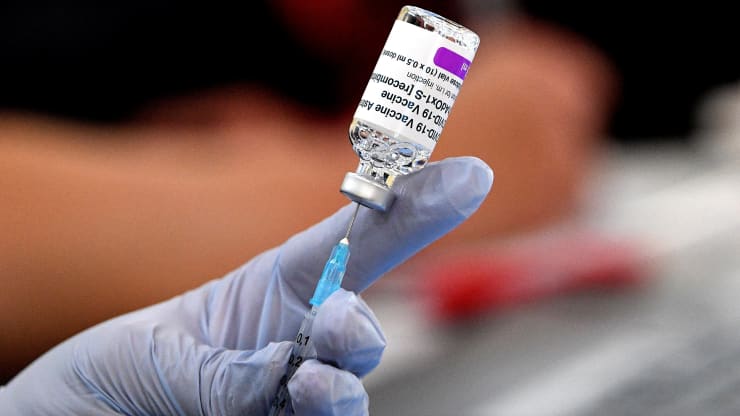
GENEVA, Sept 14 (Reuters) – The African Union on Tuesday accused manufacturers of COVID-19 vaccines of denying African countries a fair chance to buy them, and urged manufacturing countries – in particular India – to lift export restrictions on vaccines and their components.
“Those manufacturers know very well that they never gave us proper access,” Strive Masiyiwa, AU Special Envoy for COVID-19, told a World Health Organization briefing from Geneva.
“We could have handled this very differently.”
Read more: J&J in deal to supply COVID-19 vaccine to African Union member states
Out of 5.7 billion doses of coronavirus vaccines administered around the world so far, only 2% have been in Africa.
Masiyiwa stressed that, in aiming to vaccinate 60% of its population, the African Union and its partners had expected to buy half the doses needed, while half were expected to come as donations through the COVAX programme, backed by the WHO and the GAVI global vaccine alliance.
“We want access to purchase,” he said.
GAVI CEO Seth Berkley said his organisation had been counting on supplies from India – the world’s largest vaccine manufacturing centre – at the start of the outbreak – but had received no doses from India since March, when India imposed export restrictions.
Masiyiwa added: “The suppliers over the last eight to nine months have made it clear that the biggest challenge they face is export restrictions.”
He urged the World Bank and the International Monetary Fund to begin working on a standby pandemic readiness fund to help poorer nations buy vaccines in future, instead of having to rely on a sharing facility like COVAX – which has so far managed to provide only 260 million doses.
Read more: African Union says J&J vaccine shipments begin, warns of slow pace of deliveries
“Vaccine sharing is good – but we shouldn’t have to be relying on vaccine sharing, particularly when we can come to the table with structures in place and say we also want to buy,” he said.
Along with WHO Director-General Tedros Adhanom Ghebreyesus, he reiterated a demand for patent waivers on vaccines of global importance, saying that Africa wanted to set up its own manufacturing capacity.
Efforts to develop an African base for COVID-19 vaccine production will focus on trying to replicate Moderna’s MRNA.O shot, but a lack of progress in talks with the U.S. company mean the project will take time, Martin Friede, WHO Initiative for Vaccine Research coodinator, told Reuters. COVAX is set to fall nearly 30% short of its previous goal of 2 billion shots this year.
GAVI and the WHO have blamed the shortfall on a range of factors including export restrictions on the Serum Institute of India (SII).
(Reporting by Mrinalika Roy, Emma Farge; Writing by Kevin Liffey; Editing by William Maclean)